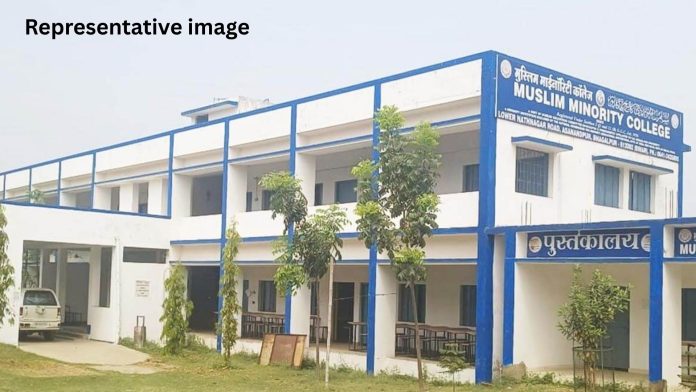New Delhi: A recent study has highlighted the ongoing marginalisation of Muslim minority educational institutions in India, pointing to systemic neglect, shrinking state support, and persistent social stigma. Conducted by Hem Borker, Assistant Professor at Jamia Millia Islamia, the research was featured in Frontline magazine and calls attention to deep-rooted inequities in the country’s education system.
The study notes that Muslim schools, colleges, and universities play a crucial role in providing access to education and social mobility. However, the label “Muslim school” often leads to prejudice, with graduates facing discrimination when seeking admission in mainstream institutions or jobs. Employers and universities frequently dismiss these students as products of “inferior” institutions.
Borker points out that official narratives tend to blame conservatism within the Muslim community, while structural issues such as poor infrastructure, inadequate resources, and lack of government support remain unaddressed. Article 30 of the Constitution guarantees the right of minorities to run their own educational institutions, yet these institutions are often overlooked in state planning.
The study recalls earlier reports, including the Sachar Committee (2006) and Kundu Committee (2014), which flagged low literacy and limited access to quality education among Muslims. Despite repeated warnings, conditions remain unchanged.
Government support for minority education has also declined. Between 2019 and 2022, spending dropped by 12.5 percent and student beneficiaries decreased by 7 percent. The cancellation of the pre-matric scholarship for classes 1–8 and the Maulana Azad National Fellowship in 2022 further reduced opportunities.
Borker concludes that inclusive nation-building is impossible without policies that ensure equity, dignity, and opportunities for Muslim youth.




